Beef and Sheep Report Summary 2018
|
|
This report provides a short overview of the most important developments of the global beef and sheep sectors in 2017 / 2018. It looks at consumption, production, trade and prices globally. The economic analysis comprises price developments and benchmarking results from the agri benchmark data base.
|
The summary of the 2018 Beef and Sheep season can be found on our website. For non-members it is for watching only, members have the full version in the member section of our website.
Beef and Sheep Report 2018
|
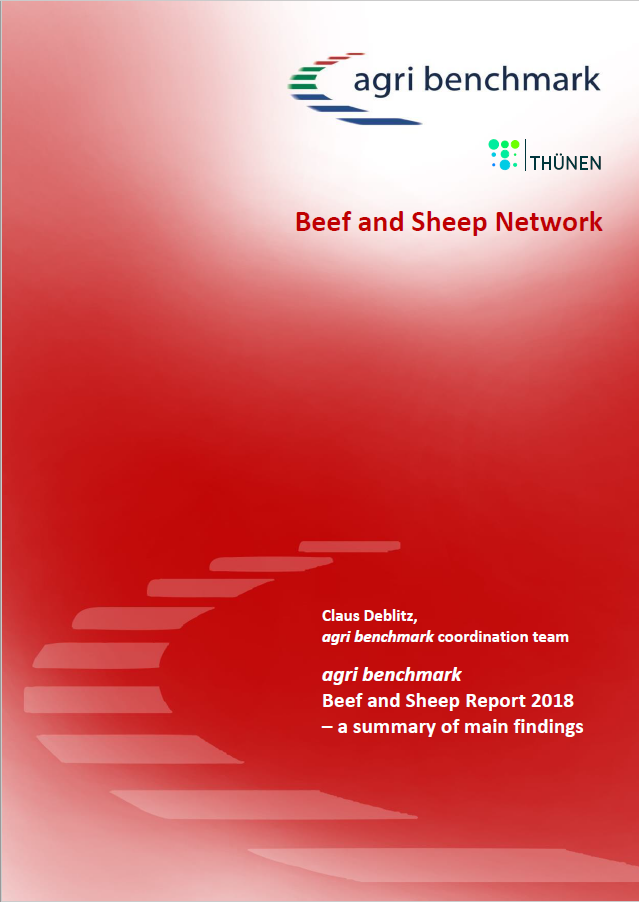
|
|
Beef and Sheep Conference 2018 in Ireland
|
|
The Beef and Sheep Conference 2018 took place in Galway, West of Ireland, from June 14-20. A comprehensive programme with internal workshops on sheep and beef, international comparisons, latest developments on beef and sheep markets, farm analysis, field trips to sheep, cow-calf and beef finishing farms was provided.
For the first time, the perspectives of beef and sheep production for the next 2-3 years were identified and quantified. A full day of the Conference was dedicated to the Global Forum with Irish and international policy analysts and decision makers of the beef and sheep value chain on June 18.
|
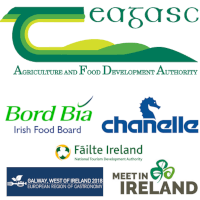
|
We would like to take the opportunity to say thank you to our host Teagasc and to Anne Kinsella and her team for creating a wonderful spirit, great programme and full commitment of all participants and organisers. We also thank our sponsors for their generous support.
|
|
Click here for the Press Release:
Understanding your competitiveness is more important than ever with free trade getting more restricted
|
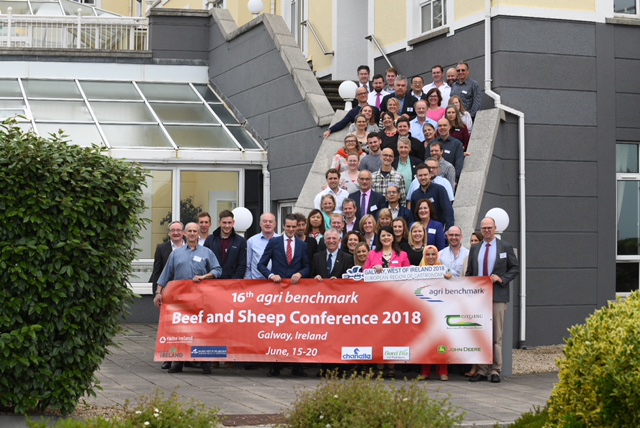
|
Other conferences
|
|
International Conference on Agricultural GHG Emissions and Food Security – Connecting research to policy and practice, Berlin, 10 – 13 September, 2018
|
|
This was a big international conference hosted by the German Ministry of Food and Agriculture and mainly organised by the Thünen Institute. In a session on mitigation potentials of livestock and grassland management, Claus Deblitz presented the results from work on silvopastoral sys-tems in Colombia from the angle of greenhouse gas emissions. Co-authors were Ernesto Reyes and Julián Chará. The presentation can be downloaded below.
|
|
Silvopastoral systems can reduce emissions and
create multiple wins in beef production
|
|
|
| More information on the conference you find on the conference website:
#AgriGHG
|
|
Global Conference on Sustainable Beef, Kilkenny, Ireland, 10.-12.10., 2018
|
|
This conference was organised by the Global Roundtable for Sustainable Beef and saw 250 partic-ipants from more than 25 countries globally and from industry, retail, science, international or-ganisations, producer organisations and NGOs. Claus Deblitz was a member of the expert panel session on "Cow Burps, Gas & Grass: A Look at Innovations Impacting Reductions in Emissions, Cultivation of Carbon and Improved Natural Resource Management Around the Globe". Together with the other panellists and the audience, he discussed the various options of reducing GHG emissions in beef production.
|
Please see our website for a movie of the panel. You might have to scroll down a bit.
|

|
|
Field trips for data collection in Paraguay and Brazil
|
|
Paraguay, March 2018
|
|
Within the WWF project of "Best practice land use options in flooded savannahs in Colombia and Paraguay" a field trip for data collection was undertaken with WWF-staff, local experts and producers from 12 to 16 March, 2018. Participants from agri benchmark were Elizabeth Lunik (cash crops), Katrin Agethen (beef), Ernesto Reyes (project manager agri benchmark) and Claus Deblitz (project leader from Thünen).
|
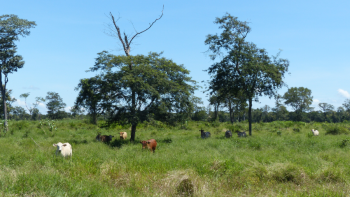
|
| Heifers grazing in Chaco North
|
| In the field trips and workshops, the following activities were performed:
|
|
1. The reference situation (baseline) located close to the Pantanal region for the cow-calf in the so-called ‘Palmar’ – palm tree situation – and the cow-calf plus beef finishing – in the Palmar and the ‘Bosque’ (former savannah forest) – situation was presented and discussed. In another step, the land use options to improve productivity and sustainability in these systems were discussed and specified.
|
|
2. The scenario for the North Chaco with integration of livestock (cow-calf plus finishing) and cash crops was established and validated through a farm visit. This will be confronted by a baseline with exten-sive grazing to compare productivity, economics and sustainability.
|
| As a follow-up of the trip, Martín Mongelós from WWF Paraguay came to Braunschweig in August 2018 and was trained in the use of our tools to analyse practice change analysis for the Par-aguay beef production and the integrated beef – crop system.
|
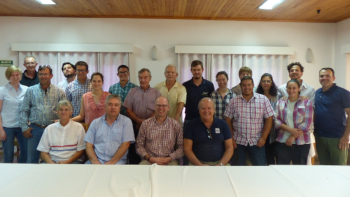
|
| Workshop participants
|
|
Brazil, November 2018
|
|
A team of agri benchmark researchers (Katrin Agethen, Ernesto Reyes, Claus Deblitz) and colleagues from partner institutions (Julián Chará from CIPAV in Colombia, Martín Mongelós from WWF Paraguay) visited two areas in Brazil to learn more about sustainable beef production, mainly in the context of silvopastoral systems.
|
|
1. In the state of Mato Grosso do Sul, we visited EMBRAPA Gado de Corte (Cattle) in Campo Grande and learned from their long-year field trials on SPS. We agreed on a cooperation and started to collect data on SPS from a commercial farm near the city of Bandeirantes, close to Campo Grande.
|
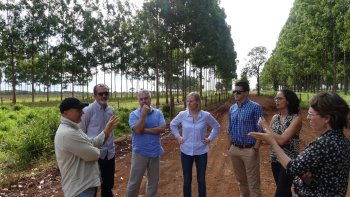
|
| Discussion of the agri benchmark team with EMBRAPA researchers Fabiana Alves (right), Mariana Pereira (second from right), Davi Bungenstab (left) in front of the field trials with Bracciaria and eucalyptus trees.
|
|
2. In the Northern state of Maranhão, around the city of Imperatriz, we met with the SPS-expert Rogério Mauricio from the Universidade Federal de São João del Rei in Minas Gerais and local producers. On a commercial farm, we saw two types of SPS systems: the first one using the natu-ral regrowth and selection of native trees (mainly for cow-calf) and the second one using eualpyt trees (and some legume bushes) in a rotation of backgrounding cattle.
|
A summary of the visit and the farm can be found in the movie here:
Missão internacional começa experiências sustentáveis no interior maranhense
|
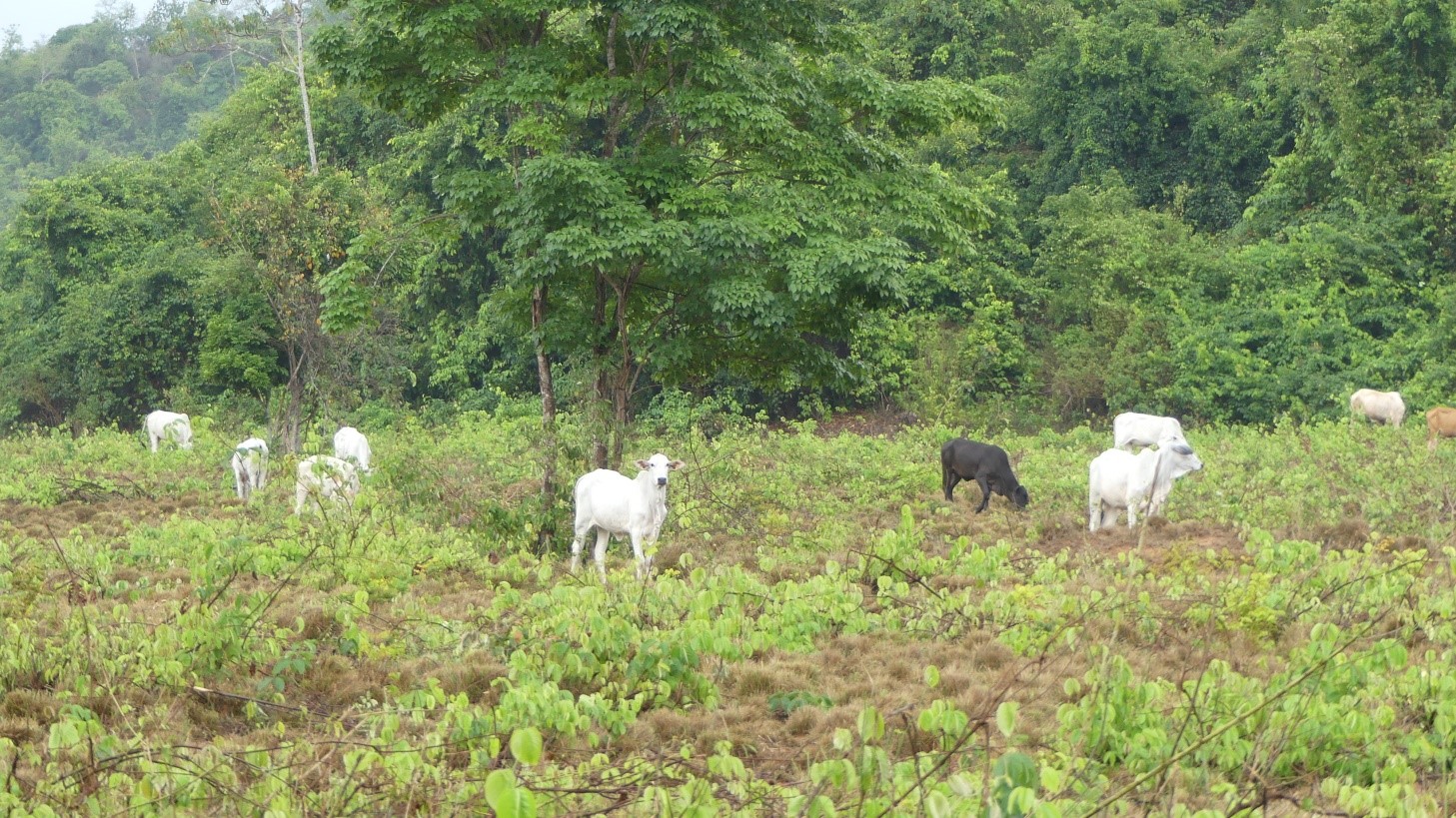
|
| Cattle on SPS with legume bushes and native trees
|
| Data from both farms and regions will be used to create two more SPS case studies and to include Brazil in the Global Silvo-Pastoral network. Our Ph.D. student Katrin Agethen will also use this data for the analysis of mitigation strategies in beef production.
|
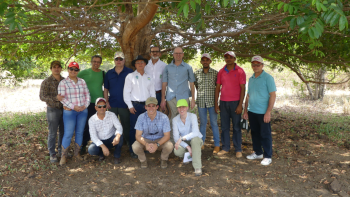
|
| The "Maranhão team"
|
Having trouble viewing this email? View it in your browser
|